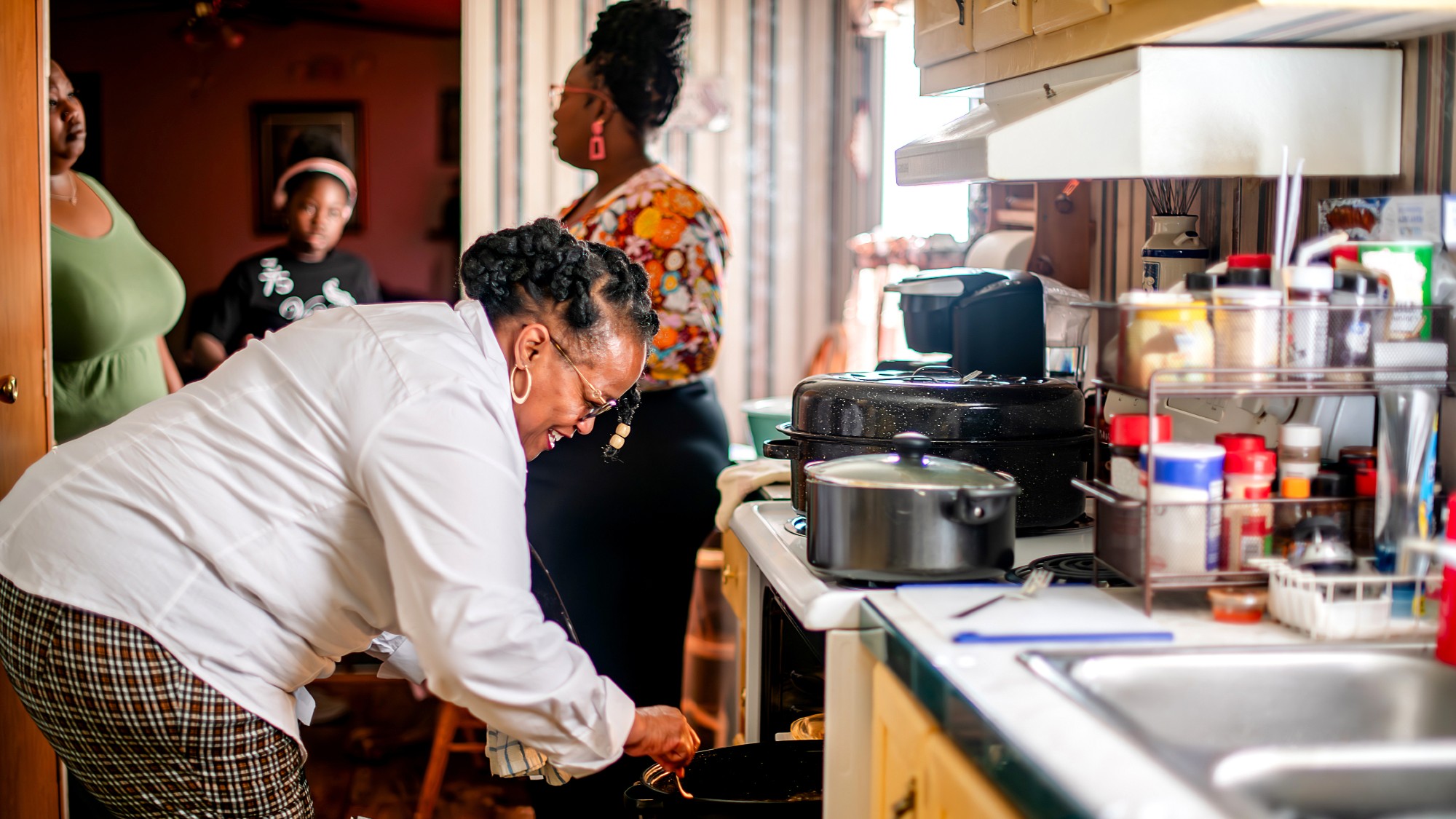The Democrats' foolish family feud
Stop it, Democrats. Just stop it.


The Democratic Party is tearing itself apart, with the forever war between the leftist Bernie Sanders and centrist Hillary Clinton wings of the party erupting once again into open think-piece warfare over the last week. Bodies are strewn everywhere from The New Republic to The Washington Monthly. Left-on-left Twitter looks like Day 110 of The Battle of the Somme.
But while the struggle for the party's ideological soul is important, it is a massive distraction from the critical work of containing the menace of the Trump administration. Messy internecine fighting is also unnecessary. Democrats are being pulled inexorably to the left by broader trends in American politics and society, and if the two camps don't realize, soon, that they desperately need each other to gain and then effectively wield power, they may both lose.
The Democratic Party is a large, diverse coalition — what political scientists refer to as a "catch-all party." Otto Kirchheimer, the political scientist who coined the term in an influential 1966 paper, said that "a party large enough to get a majority has to be so catch-all that it cannot have a unique ideological program." Such organizations may adjust their platforms and positions to appeal to the largest number of voters and therefore gain power. Infighting between the various power centers in the party is therefore not a temporary, regrettable outcome of the 2016 primary, but rather a built-in feature of our politics. There will always be factions. There will be no signing ceremony where the staff of Jacobin surrenders to the staff of The American Prospect. Every candidate who is not literally an activist plucked directly from the trenches is going to have a vote that causes consternation in some corner of the Democratic big tent. Everyone in Congress has taken money from someone. Comb through the voting history of your preferred hero, and I guarantee that you will realize your fave is problematic.
The Week
Escape your echo chamber. Get the facts behind the news, plus analysis from multiple perspectives.

Sign up for The Week's Free Newsletters
From our morning news briefing to a weekly Good News Newsletter, get the best of The Week delivered directly to your inbox.
From our morning news briefing to a weekly Good News Newsletter, get the best of The Week delivered directly to your inbox.
You don't need to use your imagination to see the consequences of overly rigid politics. Between 2008 and today, GOP primary voters elevated a number of reactionary ideologues to power, like Sen. Ted Cruz (R-Texas) and Rep. David Brat (R-Va.), all of whom seem incapable of basic compromise and therefore have legislative records that are thinner than the globally warmed outer edges of the Larsen Ice Shelf. The legislative gridlock gripping a GOP that has total power in Washington is the direct result of empowering right-wing activists and a chattering class that seems to have no interest whatsoever in the complexities of governing and making law. The last thing Democrats should want is to reproduce this dynamic in their own caucus.
Some of the intra-Dem warfare it is also a matter of manners. The "purity left" is not a nice way to refer to your natural electoral allies. The terms "Bernie bros" and "Hillbots" should be retired. People who have been on the front lines of every streetfight with the GOP since 2000 probably don't appreciate being dismissed as "neoliberals." The bitterness, name-calling, and second-guessing mean that every electoral struggle, from the Jon Ossoff campaign in Georgia to the looming 2020 primary season, is being read through the prism of a Sanders-Clinton split that is more about performance than it is about policy. You couldn't drive a Fiat through the policy gap between Kamala Harris and Elizabeth Warren, but somehow the choice between the two is consuming much-needed progressive energy that could be better deployed against the Keystone Kleptocrats in the White House and their state-level handmaidens.
Activists across the spectrum should be taking their cues from the leadership of Indivisible, the group of former Hill staffers who wrote the Indivisible Guide and who have helped organize a national movement to push back against the GOP agenda. These are people who know who their true adversaries are (Hint: It's not people sitting one standard ideological deviation to their left or to their right) and have devoted themselves and their supporters to winning important legislative fights against the GOP. Do you know whether their leadership supported Hillary or Bernie? Do you care? Because without their town halls and protests and phone calls, TrumpCare would likely be heading to the president's desk for a signature.
Progressives should also stop fighting about 2020 in the year 2017. Between now and the start of the primaries in the summer of 2019, there are 38 governor's offices and the legislatures of all 50 states up for grabs, not to mention the entire House of Representatives and 33 Senate seats. The state elections in particular are enormously important in terms of who will get to control the redistricting process after the 2020 census, a battle that will have a critical impact on whether Democrats will be starting every contest for the House at a disadvantage for the next decade like they have been since 2012. Activists from both wings who are getting all worked up about Kamala Harris or wondering whether Bernie Sanders will run again would be better off focusing their energy on these less high-profile but no less important races before turning their attention to the identity of the next president.
A free daily email with the biggest news stories of the day – and the best features from TheWeek.com
Some of the friction between the different wings of the party is inevitable, and in the long run, might even be beneficial. Kirchheimer did not necessarily see the emergence of catch-all parties in post-war Europe as positive developments. He foresaw, long ago, the transformation of formerly class-based political parties into professionalized cadres whose main goal is the competent management of the state rather than the mobilization of citizens for ideological or transformative goals. Particularly in some Western European societies like Ireland and Germany, politics became monopolized by centrist cartels, leaving voters without meaningful choices. To the extent that such a cartel is based on a genuine consensus about the role of the state in a social democracy, there are worse possible futures. But in the United States, if this consensus ever existed, it has been obliterated by the GOP's long march to the right, and the Democrats' more gradual but real shift left. For the past 20 years, that has left the United States with one sharply ideological party and one centrist-administrative party, what political scientists Matt Grossman and David Hopkins have termed "asymmetric politics."
That is changing. Progressives increasingly want the Democrats to offer a sharper contrast with their GOP adversaries, and that is unquestionably where the party is heading. But if they want to avoid repeating the embarrassing amateur theatrics unfolding on the Potomac, the Sanders and Clinton wings are going to need to come to a modus vivendi. The center-left, which supplies at least as many activists and election-day foot soldiers as the democratic socialist wing, cannot win if Bernie's energized crowds stay home. Those leftist crowds will also win little more than a hangover after another bitter election night if they display contempt for the party's centrists. The center-left desperately needs to get to work translating the new social-democratic fervor into plausible policy proposals, while the progressive left must realize that it will be a laughable mess in office if they alienate the more moderate party members, think tank specialists, and career civil servants who will be tasked with designing and carrying out major reforms.
It is long past time to stop trying to throw each other out of the big tent and, instead, figure out how to survive in it together. The hunger-crazed GOP bear scratching on the fabric outside means business.
Do Democrats?
David Faris is a professor of political science at Roosevelt University and the author of "It's Time to Fight Dirty: How Democrats Can Build a Lasting Majority in American Politics." He's a frequent contributor to Newsweek and Slate, and his work has appeared in The Washington Post, The New Republic and The Nation, among others.
-
 7 bars with comforting cocktails and great hospitality
7 bars with comforting cocktails and great hospitalitythe week recommends Winter is a fine time for going out and drinking up
-
 7 recipes that meet you wherever you are during winter
7 recipes that meet you wherever you are during winterthe week recommends Low-key January and decadent holiday eating are all accounted for
-
 Nine best TV shows of the year
Nine best TV shows of the yearThe Week Recommends From Adolescence to Amandaland
-
 Bari Weiss’ ‘60 Minutes’ scandal is about more than one report
Bari Weiss’ ‘60 Minutes’ scandal is about more than one reportIN THE SPOTLIGHT By blocking an approved segment on a controversial prison holding US deportees in El Salvador, the editor-in-chief of CBS News has become the main story
-
 Has Zohran Mamdani shown the Democrats how to win again?
Has Zohran Mamdani shown the Democrats how to win again?Today’s Big Question New York City mayoral election touted as victory for left-wing populists but moderate centrist wins elsewhere present more complex path for Democratic Party
-
 Millions turn out for anti-Trump ‘No Kings’ rallies
Millions turn out for anti-Trump ‘No Kings’ ralliesSpeed Read An estimated 7 million people participated, 2 million more than at the first ‘No Kings’ protest in June
-
 Ghislaine Maxwell: angling for a Trump pardon
Ghislaine Maxwell: angling for a Trump pardonTalking Point Convicted sex trafficker's testimony could shed new light on president's links to Jeffrey Epstein
-
 The last words and final moments of 40 presidents
The last words and final moments of 40 presidentsThe Explainer Some are eloquent quotes worthy of the holders of the highest office in the nation, and others... aren't
-
 The JFK files: the truth at last?
The JFK files: the truth at last?In The Spotlight More than 64,000 previously classified documents relating the 1963 assassination of John F. Kennedy have been released by the Trump administration
-
 'Seriously, not literally': how should the world take Donald Trump?
'Seriously, not literally': how should the world take Donald Trump?Today's big question White House rhetoric and reality look likely to become increasingly blurred
-
 Will Trump's 'madman' strategy pay off?
Will Trump's 'madman' strategy pay off?Today's Big Question Incoming US president likes to seem unpredictable but, this time round, world leaders could be wise to his playbook
